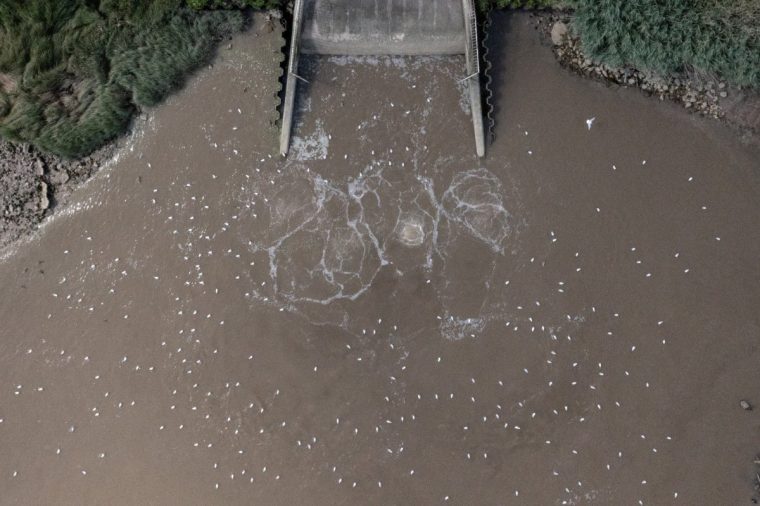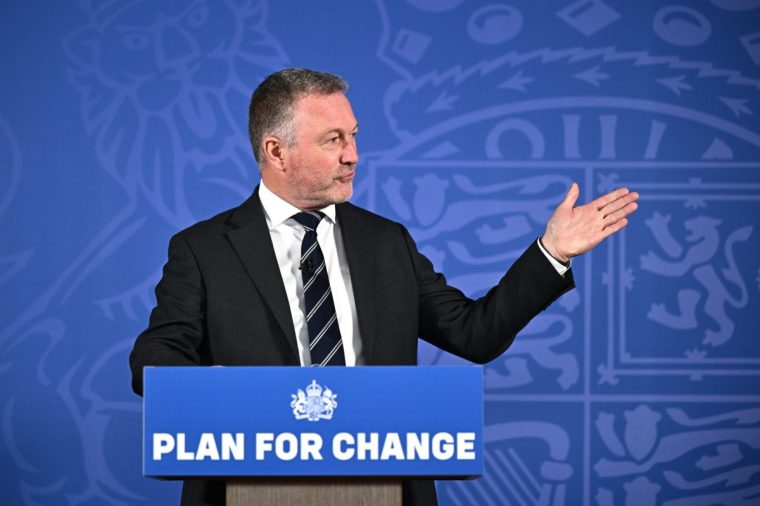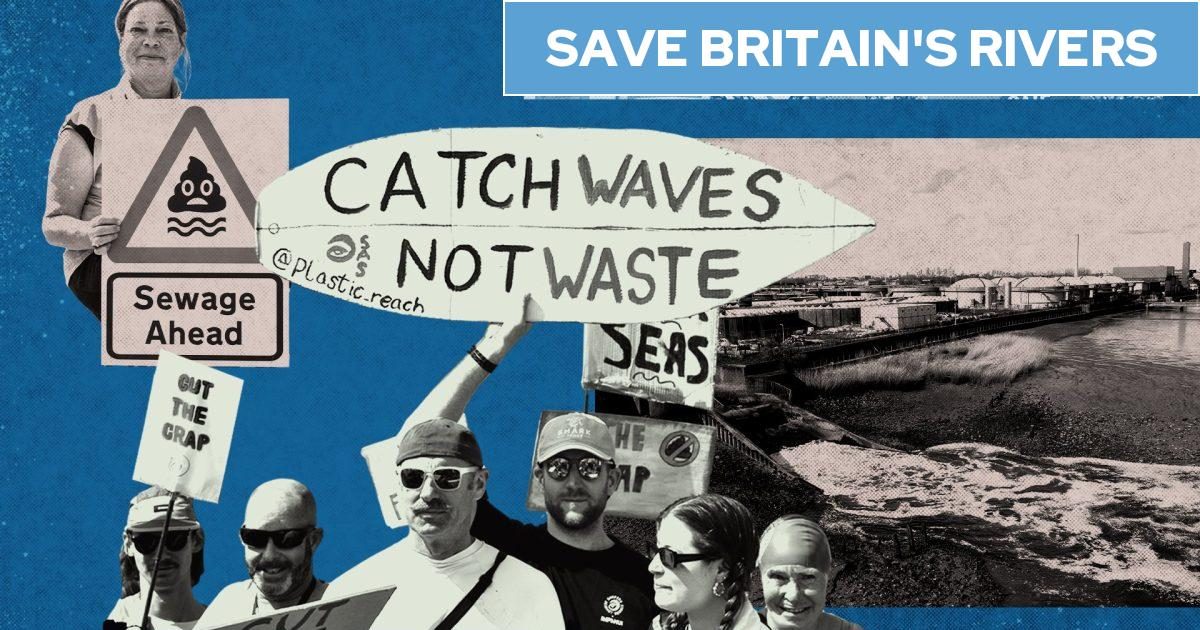Watchdog fails to grasp the pollution scandal and had too close a relationship with water companies, say insiders
The Government’s decision to abolish Ofwat was inevitable given its “disgraceful” failure to get sewage-spilling water companies under control, insiders have told The i Paper.
One former senior Ofwat official said the doomed water watchdog failed to take the sewage scandal seriously – agreeing with environmental activists that regulation had been a “shitshow”.
Another former top civil servant involved in water policy said Ofwat’s failure to insist on investment in the nation’s creaking sewage system had “come back to haunt us”.
Environment Secretary Steve Reed confirmed on Monday that Ofwat, the water regulator for England and Wales, will be scrapped in an overhaul of a “broken” system.
It marks a victory for The i Paper’s Save Britain’s Rivers campaign, which has called for tougher regulation.
Sewage spills have soared under Ofwat’s watch in the past decade. Discharges into England’s waterways came to a record 3.6 million hours in 2024, up from around 100,000 hours in 2016.
One former senior official at Ofwat – who worked for them for more than five years up to 2019 – said they had been frustrated that bosses had prioritised lowering bills over tackling sewage dumping.
“Anything that wasn’t about driving efficiency and driving bills down for customers had no place in Ofwat’s thinking,” they said.
The ex-official said Ofwat “refused to accept” the scale of discharges from sewage overflows, from which water companies release sewage into rivers, lakes, and seas during periods of high rainfall.
They added: “If you looked at the amount of money coming into the sector, and going out of the sector, the water companies did have money to invest more.
“Ofwat could have made sure that for the same water bills [for customers], more investment could have been required. Their approach delayed a lot of the spending that was needed.”
 Sewage outflows, such as this one into the River Thames in south east London, have regularly been used during periods of heavy rainfall (Photo by Ben Stansall/AFP/Getty)
Sewage outflows, such as this one into the River Thames in south east London, have regularly been used during periods of heavy rainfall (Photo by Ben Stansall/AFP/Getty)
Dr Martin Hurst, a former No 10 water policy advisor, was a senior official at Defra from 2007 to 2015 – spending several years at the environment department as water director.
“There’s no doubt Ofwat in the past turned a blind eye to the future,” said Dr Hurst, now an associate at the environmental think tank Sustainability First.
He said the economic water regulator had “allowed underinvestment and had insufficient oversight on what water companies were doing”.
Dr Hurst said the Ofwat board “didn’t have the expertise to see what was happening on the environment”. He also said the relationship between Ofwat and pollution experts at the Environmental Agency was “dysfunctional” because “they didn’t talk enough”.
He added: “Looking back, when you had cheaper borrowing and healthier water companies, we should have made sure the companies invested much more in the long-term assets. It’s come back to haunt us. It was a failure of the entire system.”
Huge pay packets and bonuses enjoyed by water company bosses have been met with public outrage in recent years. But there have also been question marks over the activities of top Ofwat officials.
Last week, it emerged senior staff at the public body put over a dozen international flights on expenses in recent years – despite the watchdog being solely focused on the UK.
There were trips to Sweden, Denmark, Portugal, Belgium, the Netherlands, and Canada between 2022 and 2025, according to a FOI response. Ofwat said the trips were for work-related activities.
There were also repeated concerns about the “revolving door” of top executives moving between Ofwat and the water companies, which prevented the regulator from taking tougher action.
Two-thirds of England’s water giants employed senior people who had previously worked at the regulator, according to a 2023 report.
 Record levels of sewage dumping have led to public outrage (Photo by Vuk Valcic/SOPA Images/LightRocket/Getty)
Record levels of sewage dumping have led to public outrage (Photo by Vuk Valcic/SOPA Images/LightRocket/Getty)
Dr Kevin Grecksch, a leading water policy expert at Oxford University’s School of Geography and the Environment, thinks the “merry-go-round” relationship “just shouldn’t have happened”.
Dr Grecksch added that the fines dished out by Ofwat to the water firms had amounted to “pocket money” compared to the firms’ mammoth profits since privatisation in 1989
He said: “For the water companies, it’s been like owning an ATM. Profit has been guaranteed.
“One of the big problems was that you only had finance people in senior roles, when you also need water people. They apparently didn’t understand [water infrastructure].
The former Ofwat official told The i Paper there had been “a lot of movement” between the regulator and water companies “in both directions”, adding: “It wasn’t seen as an issue. It wasn’t an organisation that asked questions of itself.
“Regulation has been too weak,” they added. “Sh**show is a probably a good word to describe it. You need a much tougher relationship [with the water companies].”
“I’m mildly optimistic it will get better under a new regulator – partly because it can’t get much worse. Just getting everyone under the same roof won’t work unless the new regulator is given a very clear mandate.”
Ofwat’s demise follows the wide-ranging review by former Bank of England deputy governor Sir Jon Cunliffe, who said Ofwat had failed by taking a “light touch” approach to tackling polluting water firms.
The review recommended a radical shake-up so that Ofwat, the Drinking Water Inspectorate (DWI), and the part of the Environment Agency which monitors water pollution are replaced by a single “joined-up” and “powerful” regulator.
However, a new super-regulator must have stronger powers and avoid the major mistakes made by Ofwat, say environmentalists and those who have worked in policy and regulation.
 Environment Secretary Steve Reed announced Ofwat will be scrapped following recommendations made by the Cunliffe report (Photo by Leon Neal/Getty)
Environment Secretary Steve Reed announced Ofwat will be scrapped following recommendations made by the Cunliffe report (Photo by Leon Neal/Getty)
Criticism of Ofwat has been fierce in the wake of the damning review. Gary Carter of the GMB union said Ofwat had overseen a “disgrace” of crumbling infrastructure, polluted rivers, and rising bills while “fat cat bosses get rich”.
Some campaigners have joined the union in calls for re-nationalisation. River Action chief executive James Wallace said the Cunliffe commission had “blinked” at a “once-in-a-generation opportunity” to look at public ownership.
But there is a cautious welcome about the plan to bring the economic and environmental regulation together.
“I’m broadly in favour in order to end the confusing web of different requirements,” said Mark Lloyd, chief executive of The Rivers Trust.
“Doing something radical to make regulation stronger and more nimble is very sensible. But I’m nervous that it could lead to a long period of disruption. They need to get on with it quickly.”
It is not yet clear whether the looming shake-up could see widespread job losses across the water regulators. Sources said they expected any redundancies to come at the top through streamlining in management.
The PCS union – which has members in Ofwat, Defra and the Drinking Water Inspectorate – said civil servants were “ready to do their part” in the restructuring.
An Ofwat spokesperson said the Cunliffe report was “an opportunity to reset”. The body will “continue to work hard within our powers to protect customers and the environment,” before a new regulator is set up, they added.
Philip Duffy, chief executive of the Environment Agency, said the “merger” between regulators could help ensure more is done to prevent pollution.
“On structure, none of us who have worked in the regulation of the water industry in recent years would defend the current system,” added Duffy, saying it will be “vital to get the detail right”.
